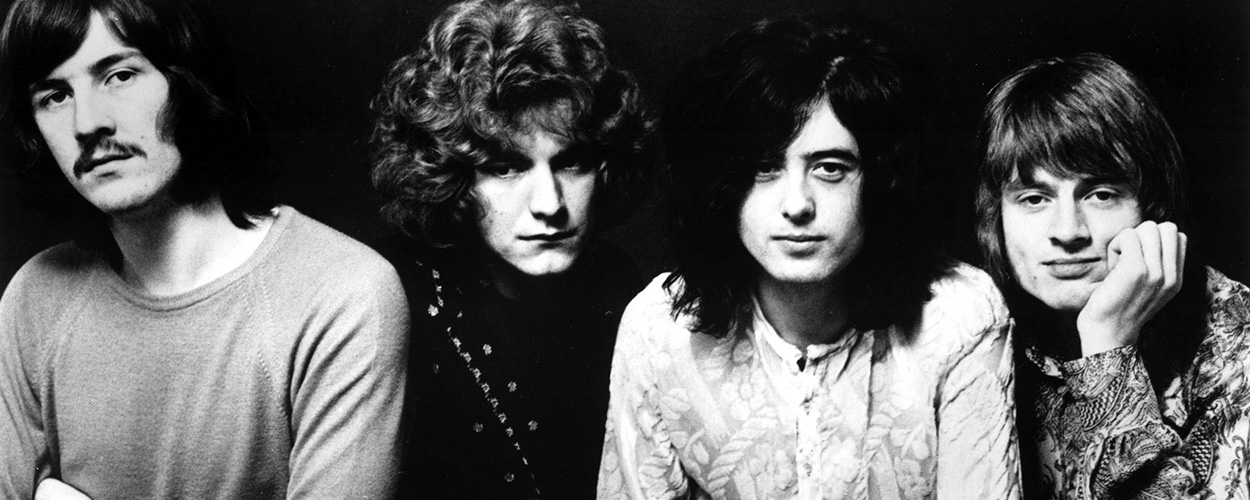This website uses cookies so that we can provide you with the best user experience possible. Cookie information is stored in your browser and performs functions such as recognising you when you return to our website and helping our team to understand which sections of the website you find most interesting and useful.
Artist News Business News Labels & Publishers Legal Top Stories
Stairway To Heaven case to return to Ninth Circuit appeals court, with more judges taking part this time
By Chris Cooke | Published on Tuesday 11 June 2019

The Ninth Circuit appeals court in the US has announced that it will rehear the still ongoing ‘Stairway To Heaven’ plagiarism case. This time ‘en banc’, meaning a bigger team of judges will consider the arguments of both sides. En banc hearings are unusual and are generally only employed in important cases, so if nothing else, at least this long-running song-theft dispute can now officially be classified as “important”.
Led Zeppelin, as you may remember, were sued by the estate of songwriter Randy Wolfe, aka Randy California. Its lawsuit alleged that ‘Stairway To Heaven’ ripped off a song written by Wolfe. However, the band ultimately defeated the litigation in June 2016 with a jury concluding that ‘Stairway’ wasn’t sufficiently similar to Wolfe’s song ‘Taurus’.
The Wolfe estate then appealed that ruling in March 2017, arguing that the jury had been badly briefed by the judge, in particular regarding some of the complexities of American copyright law that were relevant to the case. Last year the Ninth Circuit concurred with the estate, overturning the original judgement and ordering a retrial.
The appeal court’s decision to now rehear the case en banc basically overturns that ruling. Instead of a retrial, the case will go back before a bigger panel of judges in the Ninth Circuit, with oral arguments set to begin on 23 Sep.
Both sides in the dispute had requested an en banc hearing, arguing that some key questions about American copyright law sat at the heart of the case. Both sides have also argued that a ruling in favour of the other party could set a dangerous precedent that would impact on the wider music community.
Among the technicalities the judges will have to consider is what copyright law should do when two songs definitely contain the same elements, but those elements are arguably common features of certain genres of music. It’s generally agreed that those common elements are not protected by copyright. However, could the way in which those elements are employed enjoy copyright protection, and if so, does that mean there is a case for infringement if another song then copies that employment?
The other key technicality has come up in other recent plagiarism cases in the US, including the headline-grabbing ‘Blurred Lines’ litigation. It relates to the often accepted rule that, in America, copyright only protects songs in the form they were originally filed with the US Copyright Office. For older works that will mean the sheet music, rather than any recording of the song. This means that elements of a song that are not in the sheet music but which appear in the original recording will not enjoy copyright protection.
For Led Zep, the former technicality is the priority as appeal judges give the dispute new consideration, while the Wolfe estate are hoping for a rethink on the latter.
When requesting that Ninth Circuit reconsider the case en banc, Led Zep said that the court’s decision to overturn the original ruling – partly because common musical elements may be protected by copyright depending on how they are employed – raised issues of “extraordinary importance to the creators of music, movies and other works”. The appeals court had erred in its ruling, they argued, and if that judgement was allowed to stand it would “cause widespread confusion in copyright cases in this circuit”.
The Wolfe estate, meanwhile, argued that if the appeals court confirmed that copyright only protects any one song as it was originally registered it would devastate the wider songwriting community. In its petition to the court, it said that a judgement endorsing this principle would be “devastating to songwriters who have owned their music for decades, only to be told … that they do not actually own most of their music created half a century ago”.
Both sides will likely welcome the Ninth Circuit’s decision to reconsider their case en banc, though there is already some confusion as to what specific elements of the dispute the appeal judges will actually review. The court’s website simply says the hearing will consider an “appeal from the district court’s judgment after a jury trial in favour of the defendants in a copyright infringement suit alleging that Led Zeppelin copied ‘Stairway To Heaven’ from the song ‘Taurus’, written by Spirit band member Randy Wolfe”.
However, according to Law 360, a legal rep for the Wolfe estate reckons that September’s hearing will centre on its petition rather than Led Zep’s, so on the registration point. This is based on the process the Ninth Circuit has gone through so far. The court has not yet clarified how wide its remit will be in this latest hearing but, hey, look at that, we are now discussing the legal technicalities that might impact on which legal technicalities the court is allowed to discuss. These are fun times indeed!





